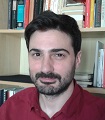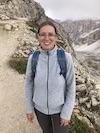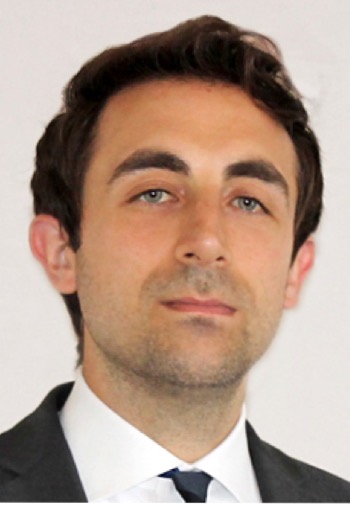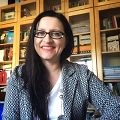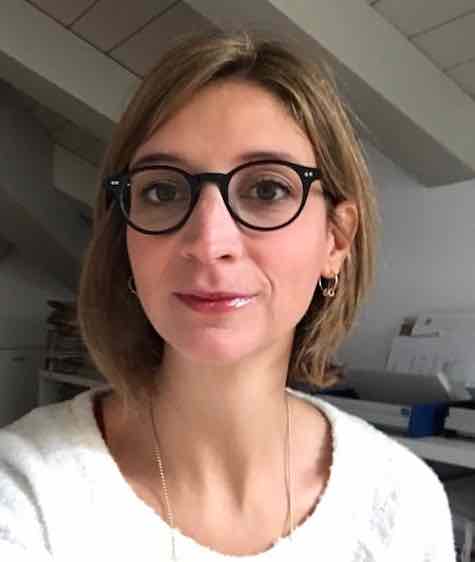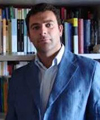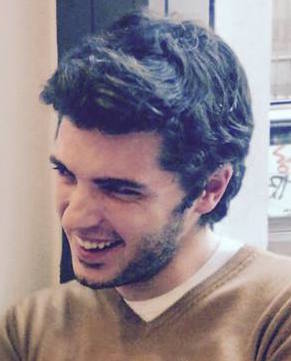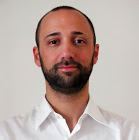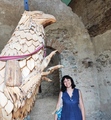Studying at the University of Verona
Here you can find information on the organisational aspects of the Programme, lecture timetables, learning activities and useful contact details for your time at the University, from enrolment to graduation.
Academic calendar
The academic calendar shows the deadlines and scheduled events that are relevant to students, teaching and technical-administrative staff of the University. Public holidays and University closures are also indicated. The academic year normally begins on 1 October each year and ends on 30 September of the following year.
Course calendar
The Academic Calendar sets out the degree programme lecture and exam timetables, as well as the relevant university closure dates..
| Period | From | To |
|---|---|---|
| ANNUALE | Oct 1, 2018 | Jun 1, 2019 |
| I semestre | Oct 1, 2018 | Jan 12, 2019 |
| II semestre | Feb 18, 2019 | Jun 1, 2019 |
| Session | From | To |
|---|---|---|
| ESAMI LINGUE- sessione invernale | Jan 14, 2019 | Feb 16, 2019 |
| ESAMI LINGUE- sessione estiva | Jun 3, 2019 | Jul 27, 2019 |
| ESAMI LINGUE- sessione autunnale | Aug 26, 2019 | Sep 21, 2019 |
| Session | From | To |
|---|---|---|
| LAUREE LINGUE - sessione autunnale (a.a. 2017/18) | Nov 12, 2018 | Nov 17, 2018 |
| LAUREE LINGUE - sessione straordinaria (a.a. 2017/18) | Apr 1, 2019 | Apr 6, 2019 |
| LAUREE LINGUE - sessione estiva (a.a. 2018/19) | Jul 8, 2019 | Jul 13, 2019 |
| LAUREE LINGUE - sessione autunnale (a.a. 2018/19) | Nov 4, 2019 | Nov 9, 2019 |
| LAUREE LINGUE - sessione straordinaria (a.a. 2018/19) | Mar 30, 2020 | Apr 4, 2020 |
| Period | From | To |
|---|---|---|
| Festa di Ognissanti | Nov 1, 2018 | Nov 1, 2018 |
| Sospensione dell'attività didattica | Nov 2, 2018 | Nov 3, 2018 |
| Festa dell’Immacolata | Dec 8, 2018 | Dec 8, 2018 |
| VACANZE DI NATALE | Dec 22, 2018 | Jan 6, 2019 |
| VACANZE DI PASQUA | Apr 19, 2019 | Apr 23, 2019 |
| Sospensione dell'attività didattica | Apr 24, 2019 | Apr 24, 2019 |
| Festa della liberazione | Apr 25, 2019 | Apr 25, 2019 |
| Festa del lavoro | May 1, 2019 | May 1, 2019 |
| Sospensione dell'attività didattica | May 20, 2019 | May 20, 2019 |
| Festa del Santo Patrono | May 21, 2019 | May 21, 2019 |
| Festa della Repubblica | Jun 2, 2019 | Jun 2, 2019 |
| VACANZE ESTIVE | Aug 13, 2019 | Aug 18, 2019 |
Exam calendar
Exam dates and rounds are managed by the relevant Foreign Languages and Literatures Teaching and Student Services Unit.
To view all the exam sessions available, please use the Exam dashboard on ESSE3.
If you forgot your login details or have problems logging in, please contact the relevant IT HelpDesk, or check the login details recovery web page.
Should you have any doubts or questions, please check the Enrollment FAQs
Academic staff
 daniele.beltrame@univr.it
daniele.beltrame@univr.it
 bernardo.calabrese@univr.it
bernardo.calabrese@univr.it
 silvia.cavalieri@univr.it
silvia.cavalieri@univr.it
 riccardo.cella@univr.it
riccardo.cella@univr.it
 elisa.dallarosa@univr.it
elisa.dallarosa@univr.it
 katiuscia.darici@univr.it
katiuscia.darici@univr.it
 sara.dattoma@univr.it
sara.dattoma@univr.it
 jacopo.galavotti@univr.it
jacopo.galavotti@univr.it
 diegogabriel.krivochen@univr.it
diegogabriel.krivochen@univr.it
 stefania.montemezzo@univr.it
stefania.montemezzo@univr.it
 chunye.niu@univr.it
chunye.niu@univr.it
 simone.pregnolato@univr.it
simone.pregnolato@univr.it
 fabioantonio.scrignoli@univr.it
fabioantonio.scrignoli@univr.it
 tania.triberio@univr.it
tania.triberio@univr.it
 sonia.trovato@univr.it
sonia.trovato@univr.it
 francesco.zuin@univr.it
francesco.zuin@univr.it
Study Plan
The Study Plan includes all modules, teaching and learning activities that each student will need to undertake during their time at the University.
Please select your Study Plan based on your enrollment year.
1° Year
| Modules | Credits | TAF | SSD |
|---|
1st foreign language2nd foreign language1st foreign literature and cultureGerman literature and culture 1
2nd foreign literature and cultureGerman literature and culture 1
2° Year activated in the A.Y. 2019/2020
| Modules | Credits | TAF | SSD |
|---|
1st foreign language2nd foreign language1st foreign literature and culture or a related courseEnglish literature and culture 2
French literature and culture 2
German literature and culture 2
Spanish literature and culture 2
2nd foreign literature and culture or a related courseEnglish literature and culture 2
French literature and culture 2
German literature and culture 2
Spanish literature and culture 2
Italian literature and culture
Theory and Techniques of communication
Geography of communication and international trade
Modern and Contemporary Economic History
3° Year activated in the A.Y. 2020/2021
| Modules | Credits | TAF | SSD |
|---|
1st foreign language2nd foreign languageComparative and European Public law
Principles of international marketing
| Modules | Credits | TAF | SSD |
|---|
1st foreign language2nd foreign language1st foreign literature and cultureGerman literature and culture 1
2nd foreign literature and cultureGerman literature and culture 1
| Modules | Credits | TAF | SSD |
|---|
1st foreign language2nd foreign language1st foreign literature and culture or a related courseEnglish literature and culture 2
French literature and culture 2
German literature and culture 2
Spanish literature and culture 2
2nd foreign literature and culture or a related courseEnglish literature and culture 2
French literature and culture 2
German literature and culture 2
Spanish literature and culture 2
Italian literature and culture
Theory and Techniques of communication
Geography of communication and international trade
Modern and Contemporary Economic History
| Modules | Credits | TAF | SSD |
|---|
1st foreign language2nd foreign languageComparative and European Public law
Principles of international marketing
| Modules | Credits | TAF | SSD |
|---|
Legend | Type of training activity (TTA)
TAF (Type of Educational Activity) All courses and activities are classified into different types of educational activities, indicated by a letter.
French literature and culture 2 [Tur] (2019/2020)
Teaching code
4S002906
Teacher
Coordinator
Credits
9
Language
French
Scientific Disciplinary Sector (SSD)
L-LIN/03 - FRENCH LITERATURE
Period
I semestre (Lingue e letterature straniere) dal Sep 30, 2019 al Jan 11, 2020.
Learning outcomes
In accordance with the specificities of the course of study, lessons aim at providing an introductory knowledge of French history and culture via the presentation of the French capital’s socio-historical and urbanistic development. The course will equally focus on deepening the interrelation existing between society, culture and literature during a part of the modern era (late Eighteenth-Nineteenth century) taking into consideration literary texts by canonical authors related to the main subject chosen. Lessons will be held in French. The critical bibliography is also in foreign language. This will contribute to improve students' language skills. At the end of the lessons, students will acquire socio-cultural, historical and literary knowledge specific to the chosen tourist and commercial orientation. They will also demonstrate that they can apply, in an autonomous way and in a foreign language, the acquired knowledge to the analysis of literary texts concerning the central subject of the course (the literary representation of the French capital).
Program
«Le mal du pays». The journey, a culture project
BIBLIOGRAPHY
TEXTS
André Gide, Voyage au Congo, Paris, Gallimard, 1927
Blaise Cendrars, Bourlinguer, Paris, Denoël, 1948
Raymond Queneau, On est toujours trop bon avec les femmes, Paris, Gallimard, 1962
CRITICAL ESSAYS
Pierre Masson, «Identité du colonisé. Gide et l’Arabe», in Gide ou l’identité en question, sous la direction de Jean-Michel Wittmann, Paris, Classiques Garnier, 2017, pp. 275-286
Frank Lestringant, André Gide l’inquiéteur, tome II, Paris, Flammarion, 2012, pp. 267-400
Jean Bessière, «L’Amérique, chambre claire», in Blaise Cendrars, 2, «Cendrars et l’Amérique», textes réunis par Monique Chefdor, Paris, Lettres Modernes Minard, 1989, pp. 9-25
Riccardo Benedettini, «Alcune osservazioni su un modello di storia irlandese nelle Œuvres complètes de Sally Mara di Raymond Queneau», in Il Confronto letterario. Quaderni di letterature straniere moderne e comparate dell’Università di Pavia, n. 56, fasc. II - anno XXVIII, Como-Pavia, Ibis editore, 2011, pp. 343-359
***
Paolo Tamassia, Il Novecento, in Storia europea della letteratura francese, a cura di L. Sozzi, vol. II, Dal Settecento all’età contemporanea, Torino, Einaudi, coll. PBE, 2013, pp. 235-409
ou bien:
La littérature française: dynamique & histoire II, sous la direction de Jean-Yves Tadié, Paris, Gallimard, 2007, (XXe siècle).
Further indications can be provided during the course and uploaded on the e-learning platform
Examination Methods
The evaluation will take place through oral assessment of the knowledge related to the course.
The following will be evaluated: the quality of oral expression in French, the clarity and consistency of the argument, the completeness of the information and the ability to critically investigate the acquired knowledge.
Non-attending students are invited to contact the teacher for the necessary additions to the program.
Type D and Type F activities
To discover all the teaching activities accredited by the foreign teaching college click here
Career prospects
Module/Programme news
News for students
There you will find information, resources and services useful during your time at the University (Student’s exam record, your study plan on ESSE3, Distance Learning courses, university email account, office forms, administrative procedures, etc.). You can log into MyUnivr with your GIA login details: only in this way will you be able to receive notification of all the notices from your teachers and your secretariat via email and soon also via the Univr app.
Student login and resources
Gestione carriere
Assegnazione tutore
Attività accreditate D/F
Calendario didattico dettagliato
Cambio lingua curriculare
Competenze informatiche
Competenze linguistiche (prima e seconda lingua)
Competenze linguistiche in triennale (terza lingua CFU F)
Compilazione del piano didattico
Corso di Lingua portoghese
Erasmus+ e altre esperienze all'estero
Linguistic training CLA
Presentazione dei corsi di studio e Open day
Graduation
List of theses and work experience proposals
| Stage | Research area |
|---|---|
| PROGETTO MAMBRINO Stage per bibliografia | Various topics |
Saperi minimi
Stage e tirocini
Nel piano didattico della laurea triennale in Lingue per il turismo e il commercio internazionale (L12) è previsto un periodo di stage obbligatorio (CFU 6) in organizzazioni imprenditoriali.
Le attività di stage sono finalizzate a far acquisire allo studente una conoscenza diretta in settori di particolare interesse per l’inserimento nel mondo del lavoro e per l’acquisizione di abilità professionali specifiche.
Le attività di stage sono svolte sotto la diretta responsabilità di un singolo docente presso studi professionali, enti della pubblica amministrazione, aziende accreditate dall’Ateneo veronese.
I crediti maturati in seguito ad attività di stage saranno attribuiti secondo quanto disposto nel dettaglio dal “Regolamento d’Ateneo per il riconoscimento dei crediti maturati negli stage universitari” vigente.
- Tutte le informazioni in merito agli stage per futuri studenti sono disponibili alla pagina Stage e tirocini.
- Tutte le informazioni in merito agli stage per studenti iscritti sono pubblicate in MyUnivr - come fare per - stage e tirocini.
- Tutte le informazioni in merito agli stage per le aziende sono disponili alla pagina Stage e tirocini per azienze.
Ulteriori informazioni al seguente link https://www.univr.it/it/i-nostri-servizi/gestione-carriere-studenti-lingue-e-letterature-straniere/stage-e-tirocini-lingue-e-letterature-straniere

 +39 045802 8409
+39 045802 8409

